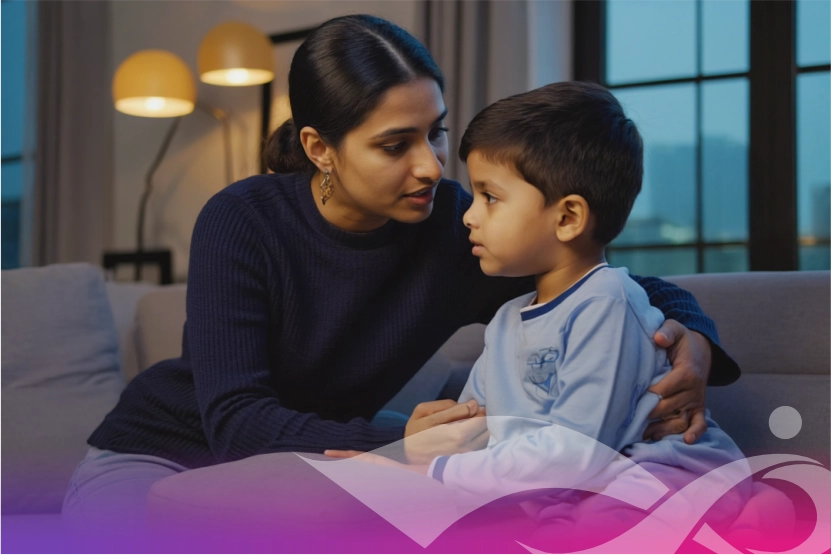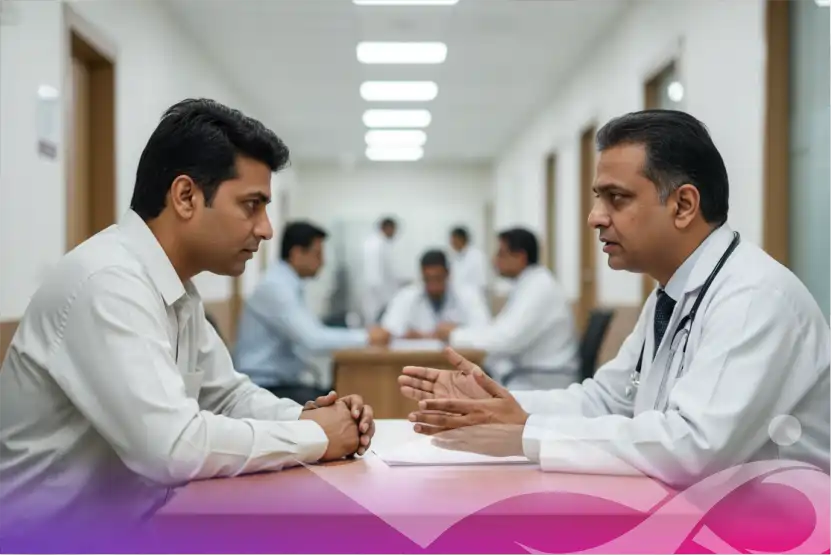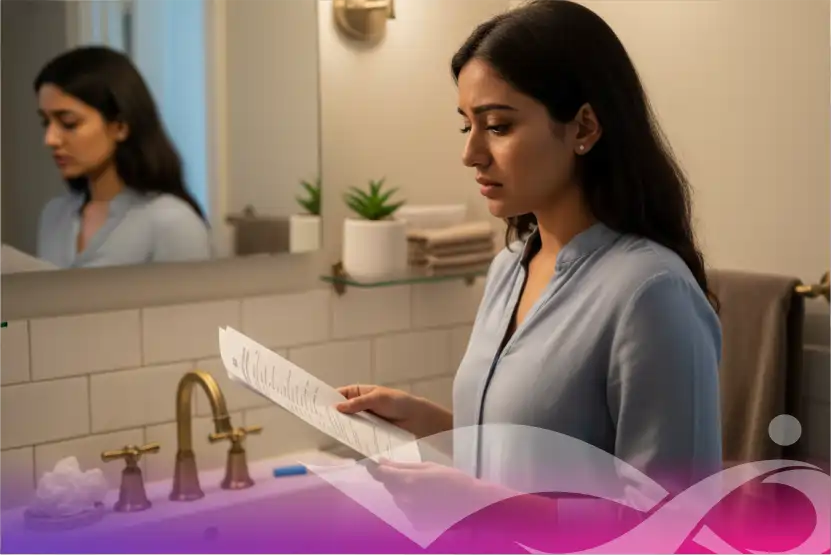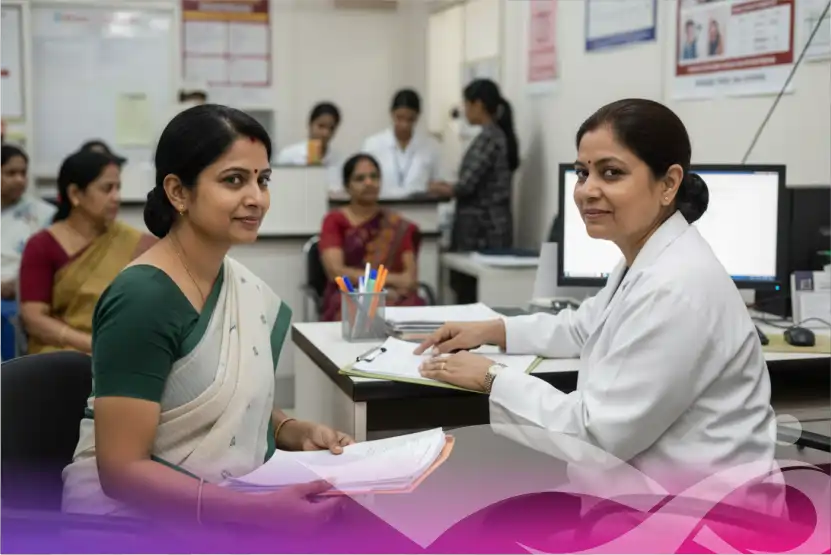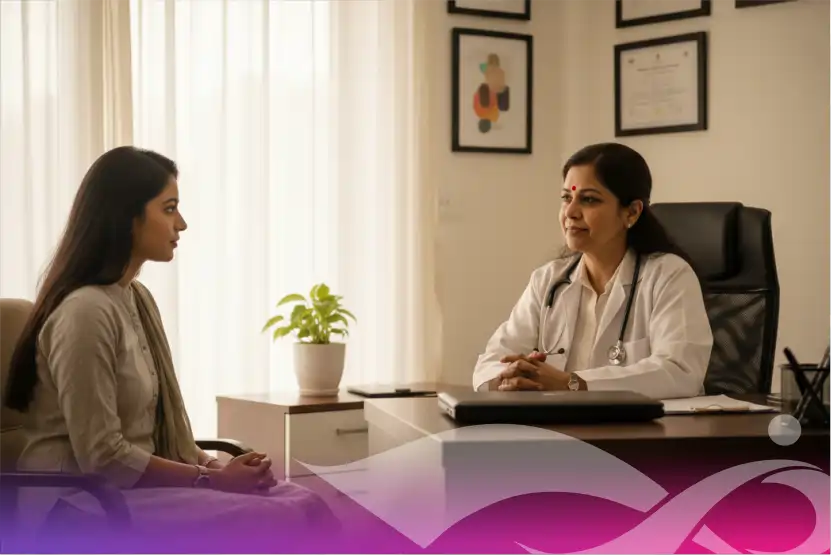Being a parent and learning you have cancer is quite challenging; one of the most difficult tasks that follows is how you tell your children. Though shielding children from suffering is instinctive, their emotional well-being depends on honest, age-appropriate communication, which also helps them negotiate the changes ahead. Understanding What is cancer and its types can provide a clearer context for these difficult conversations. At IOCI, we appreciate the knock-on effects a diagnosis has on the whole family and support approaches that build resilience and understanding for all those engaged.
Why Should Open Communication Count?
While keeping children in the dark seems protective, usually secrecy causes more anxiety and uncertainty. Young children are quite sensitive; they pick up emotional changes in their parents, stress, and deviations in daily activity. People may fill in the blanks with their own fears, usually seeing events far worse than reality, without exact knowledge.
Children gain from honest communication suited for their age and level of understanding:
- Know the Situation: Cleanses uncertainty and helps them to absorb the new reality.
- Tell them you they are not to blame and that their needs will still be satisfied to make them feel safe and secured.
- Permission to ask questions, voice concerns, and properly process emotions in a healthy manner gives them help.
- Build confidence by reminding them they can rely on their parents with tough realities.
- Get ready for developments. helps them predict changes in parent appearance, daily schedule, or energy level.
Guidelines Appropriate for Different Stages Based on Age
Your child's age will greatly affect how you discuss cancer:
Students in grades two through five: Simple and Clear, Concrete
- Keep it basic and succinct. Emphasise factual specifics. "Mommy is sick; the doctors are treating her with medication meant to help."
- comfort them: Stress who will be looking after them. "Grandma will pick you up from school sometimes; Daddy will still read your bed night story."
- Tell about obvious changes: "Mommy's hair might fall out from the medicine, but it will grow back."
- Use colloquial language: "Sick" or "ouchie" may make more sense than "cancer."
- School-aged children (ages 6 to 12) More Information, Calmness, and Involvement
- Be honest but also delicate. "Mommy has cancer, a condition whereby some of her body's cells are unhealthy. The doctors are trying to eliminate them."
- Describe therapy effects: "The medicine will make Mommy tired or lose her hair, but it's helping her get better."
- Stress it's not contagious. Essential to help with this shared fear.
- "What questions do you have?" invites inquiry. "How does this affect you?"
- Continue habits: As much as you can, keep to known habits.
- Assign them modest tasks. Easy chores can make one feel active and valuable.
Teens (ages 13+) are honest, thorough, and sympathetic.
- Be open and direct. View them as young adults. If appropriate, further specifics on the diagnosis and course of treatment including possible results.
- Evaluate their emotions. Teenagers might show resentment, anxiety, grief, or even detachment. Check their feelings.
- Talk about changes in roles: They might have to pick up more obligations.
- Permit autonomy: Allow them time to absorb.
- Motivational questions and research encouragement help If you don't know the answers, offer to hunt them out together.
- Talk to them about their concerns—that of the family's financial future or the parent's survival.
Advice generally for all ages:
- Choose the proper location and time. Look for a peaceful, cosy place free of hurry or interruption.
- Use straightforward, clear language. Steer clear of technical medical language.
- Get ready for emotions and questions. Children have a lot of questions; some right away, some later. They might also respond with tears, rage, or silence. Let them communicate their ideas.
- Calm, reassure, calm: Stress that they are loved; the cancer is not their fault; and their care will go on.
- Maintain hope, but be realistic. One is free to be honest about the difficulties while yet expressing hope for recovery.
- Ask for help personally. From an empty cup, you cannot pour. Ask your friends, family, counsellor, or support network.
Although it's quite challenging, discussing a parent's Cancer diagnosis and treatment with children sets the groundwork for good coping. At IOCI, we appreciate the subtleties of family support and acknowledge causes of cancer in young adults and their effects on families, therefore highlighting our dedication to comprehensive treatment. We provide tools and advice to enable families to negotiate these delicate talks so that emotional well-being is given top priority during the cancer process.
Consult us at any of our locations—across IOCI Noida, Greater Noida, Mumbai, Indore, Aurangabad, Agartala, Saharanpur, Kanpur and Jodhpur.






